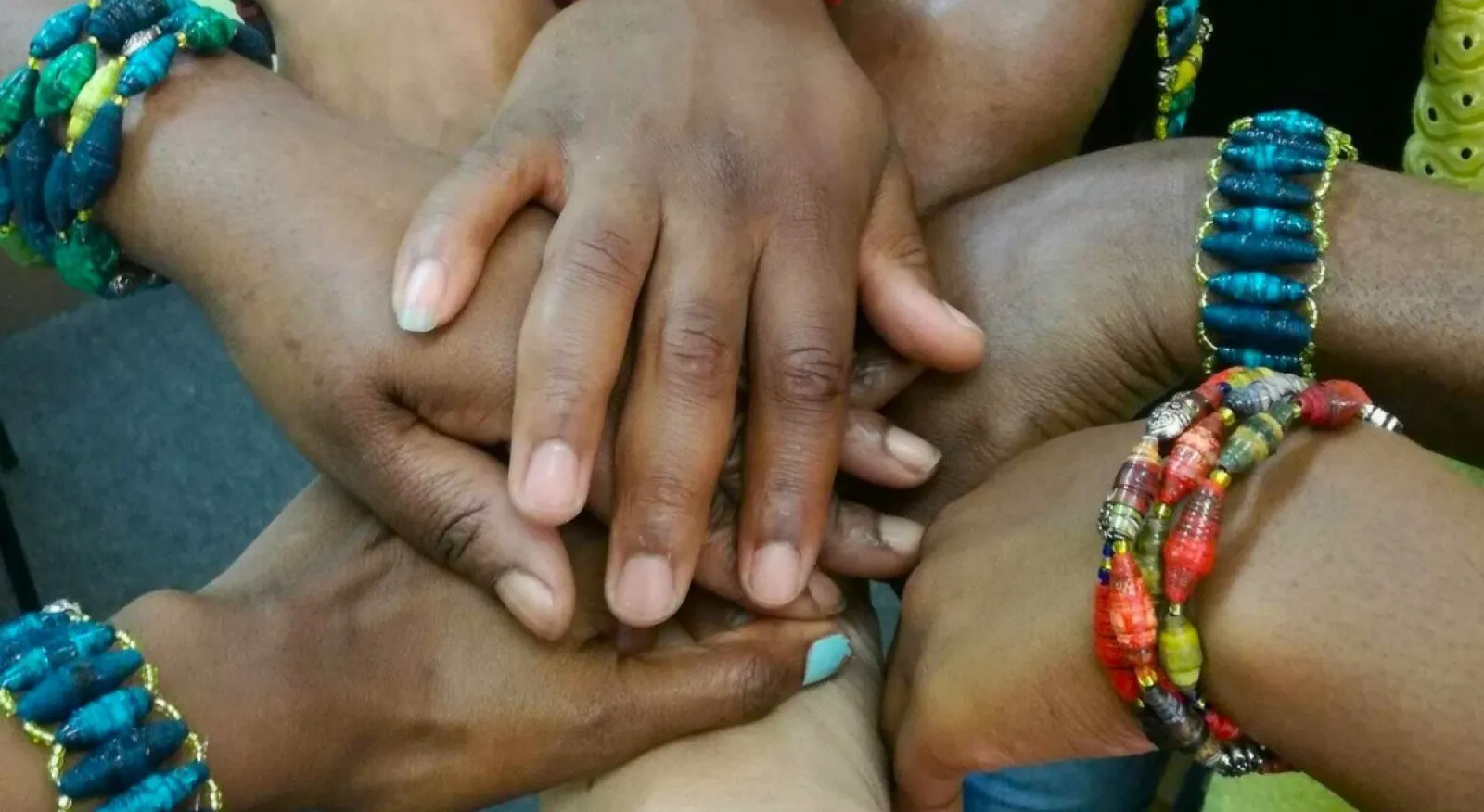Making a stand against gender-based violence
How two organisations in Southern Africa are working together to combat violence against women.

The Australian Volunteers Program in Southern Africa has a strong history of supporting partner organisations working to prevent gender-based violence.
Kwakha Indvodza (meaning ‘Building a Man’ in siSwati) is a non-profit organisation in Eswatini, specialising in community-led health and behaviour change interventions with men and boys.
‘We must consider men and boys as agents of change and allies in achieving gender equality and combating gender-based violence,’ says Sonic N. Dlamini, Executive Director of Kwakha Indvodza.
‘At Kwakha Indvodza, we raise awareness of violence, male health and positive masculinity, as well as advocate for policy and legal reforms which better protect men, women and children.’
‘Men [in Eswatini] are the gatekeepers of current gender orders and are potential resistors of change. If we do not effectively reach men and boys, many of our efforts will be either thwarted or ignored,’ says Sonic.
‘Making men and boys more aware of the costs of conventional forms of masculinity, both for themselves and for women and girls, is an important step towards challenging gender inequalities.’
In Sonic’s experience, projects focused solely on women and girls can reinforce existing gender stereotypes, whereas involving men and boys can generate a broader consensus on issues.
The organisation’s Lisango Letemphilo Community Dialogues initiative encourages men to have constructive conversations about how to improve their health, wellbeing, and community participation – including social responsibility and behaviour towards women and girls.
Tackling gender-based violence – together
The Australian Volunteers Program in Southern Africa enabled a collaboration between Kwakha Indvodza and Refugee Social Services in South Africa, which also strives to combat gender-based violence.
Based in Durban, Refugee Social Services provides social services for refugees and asylum seekers in South Africa’s Kwa-Zulu Natal Province.
‘This includes women who have experienced gender-based violence in their home country, en route to South Africa and while in the country’ says Yasmin Rajah, Director of Refugee Social Services.
As well as providing direct services including counselling and facilitating access to shelter, medical treatment, formal documentation and employment, Refugee Social Services raises awareness about gender-based violence.
‘We focus on capacity strengthening with community members who become volunteer peer educators. They help raise awareness in communities about gender-based violence. They also provide initial counselling if they encounter survivors of gender-based violence and refer them to us for further services,’ explains Yasmin.
Sharing innovative solutions
Both Refugee Social Services and Kwakha Indvodza (and program partner Kick4Life in Lesotho) have received Impact Fund grants from the program to support the organisations’ work to prevent and respond to gender-based violence. This included a learning exchange, in which participants from all three organisations met in Durban to share their experiences and expertise.
During the exchange, representatives from Refugee Social Services spoke about the complexities of creating gender-based violence programs for asylum seekers and refugees, including managing culture shock and barriers to services.
‘During our exchange trip with Refugee Social Services, we shared a lot of ideas about what works best regarding gender-based violence and how we can foster cross-border knowledge sharing and opportunities for joint campaigns and proposal development,’ says Sonic.
‘Since returning to Eswatini, our staff shared learnings and best practices within the organisation and worked together to identify useful strategies which could be implemented locally.’
‘We used the Impact Fund grant to pilot a successful program designed to address and mitigate gender-based violence by providing young women with therapy and support sessions and capacity building workshops focused on developing livelihoods and micro business start-ups,’ says Yasmin.
‘This provided opportunities as well as a safe space and peer support network for young women who have no opportunities for further education and are at potential risk of early forced marriage or getting into a transactional sexual relationship.
‘With the success of the pilot and after collaborating with Kwakha Indvodza [and Kick4Life] we have now started a similar program for young men. Gender-based violence information and life skills training has been mainstreamed into this, and other, programs.’
A shared mission
Kwakha Indvodza and Refugee Social Services share many hopes and goals for the future.
‘We strongly believe that through our work we can achieve a more equitable society in Eswatini,’ says Sonic.
Yasmin reflects on how the two organisations coming together has proved to be beneficial already.
‘The opportunity to connect with Kwakha Indvodza [and Kick4Life] to engage and learn is bearing fruit, she says.
‘We will continue to collaborate with local organisations to strengthen our advocacy work and look for opportunities to collaborate with other marginalised groups.
‘Ultimately, we hope that our gender-based violence-related projects and activities will lead to strengthened support for survivors of gender-based violence and help create a societal shift towards a more equal Southern Africa.’